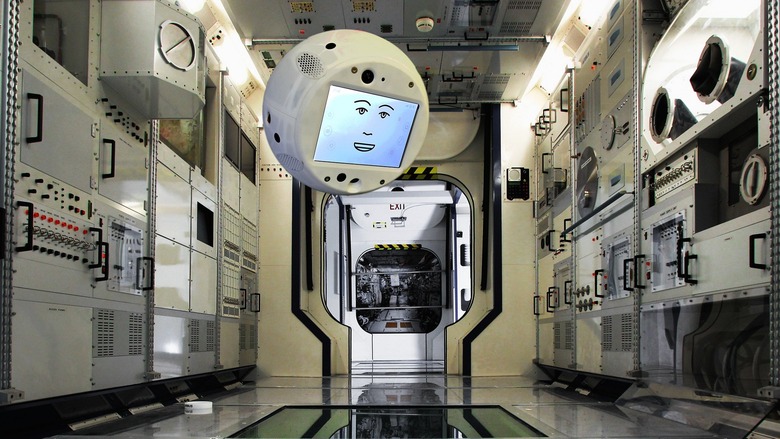ESA's Slightly Creepy AI Assistant Is Headed To The International Space Station And Definitely Won't Kill Everyone
Science fiction movies have taught us that mixing AI with space travel rarely works out well. From HAL 9000 to Mother, something always seems to go wrong when you put an AI in space, but that isn't stopping the European Space Agency and NASA from testing out their very own floating AI assistant in the International Space Station on a soon-to-be-launched resupply mission.
The "Crew Interactive Mobile Companion" — or CIMON ("Simon") for short — is a friendly spherical gadget that will float around the space station and provide useful information for its handlers. Complete with facial recognition, CIMON will help astronauts perform various tasks and aid them in working through problems when needed. It also definitely won't become evil and turn on the crew. We think.
CIMON was built in a joint partnership between IBM and Airbus, and the ESA will be the ones to test it out, but it could be a sign of even greater things to come. NASA believes that as space travel becomes more complex, spacecraft equipped with AI will be required. Future AI will take some of the decision make out of the crew's hands and ensuring that things proceed smoothly with as little stress on the human travelers as possible.
"With CIMON, crew members can do more than just work through a schematic view of prescribed checklists and procedures; they can also engage with their assistant," Airbus said in its original announcement of the new AI companion. "In this way, CIMON makes work easier for the astronauts when carrying out every day routine tasks, helps to increase efficiency, facilitates mission success and improves security, as it can also serve as an early warning system for technical problems."
Obviously, CIMON doesn't have any kind of meaningful decision-making power. It can't control any of the spacecraft's systems or do anything without interacting with a crew member, so there's really no risk of anything going wrong, but the day may soon come where astronauts hand tasks, and potentially even their lives, to a digital brain.
